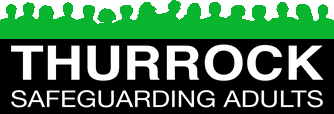Sexual Abuse – What is it?
Sexual abuse is any form of sexual activity where there is no consent, or any sexual activity with a person who lacks the mental capacity to provide consent.
Consent: to give permission for something to happen or to take part in something. Some people cannot give consent due to a disability, injury or illness. Here is a quick and very easy to understand video on YouTube courtesy of Thames Valley Police.
Sexual abuse isn’t just physical; it also includes non-contact abuse such as sexual harassment, sexual photography or forced witnessing of sexual acts. Sexual abuse may include:
- Rape, attempted rape or sexual assault
- Inappropriate touching anywhere
- Non-consensual masturbation of either or both persons
- Non-consensual sexual penetration or attempted penetration of the vagina, anus or mouth
- Any sexual activity that the person lacks the capacity to consent to
- Inappropriate looking, sexual teasing or innuendo
- Sexual harassment
- Sexual photography or forced use of pornography or witnessing of sexual acts
- Indecent exposure.
Who it happens to and who are the perpetrators
Anyone can experience sexual abuse regardless of ethnicity, age, sexuality, disability, religion or class. However, for people who are vulnerable due to a care or support need they may face additional barriers to seeking help.
If sexual abuse happens between people who are in an intimate relationship, or are related, this is domestic violence.
Perpetrator is likely to be someone who is known to the adult and has regular contact with them, such as a:
- Partner
- Friend
- Relative
- Carer
- Neighbour
- Other resident in a residential care home setting.
Possible signs of sexual abuse
- Bruising, particularly to the thighs, buttocks and upper arms and marks on the neck
- Torn, stained or bloody underclothing
- Bleeding, pain or itching in the genital area
- Unusual difficulty in walking or sitting
- Foreign bodies in genital or rectal openings
- Infections, unexplained genital discharge, or sexually transmitted diseases
- Pregnancy in a woman who is unable to consent to sexual intercourse
- The uncharacteristic use of explicit sexual language or significant changes in sexual behaviour or attitude
- Incontinence not related to any medical diagnosis
- Self-harming
- Poor concentration, withdrawal, sleep disturbance
- Excessive fear/apprehension of, or withdrawal from, relationships
- Fear of receiving help with personal care
- Reluctance to be alone with a particular person
If you are worried that you or an adult you know is experiencing sexual abuse report it now, call 01375 511000.
Email: Thurrock.First@thurrock.gov.uk
Children witnessing abuse is child abuse – if you are concerned about a child report it now, call 01375 652 802.
Outside of office hours call: 01375 372 468.
If the person is immediate danger, dial 999 and ask for the police.
Sexual Violence and Abuse - Awareness eLearning
Sexual Violence and Abuse – Awareness
This self-paced e learning module seeks to raise awareness of sexual violence and abuse. It aims to equip individuals with the tools to have an understanding of what sexual violence and abuse is, the meaning of consent and how to respond appropriately to disclosures. This is available to individuals who work in partnership across Thurrock or provide a service to Thurrock residents. The training is suitable for local authority staff, police officers, GPs, NHS staff, representatives of churches, faith and community groups and the third sector and voluntary organisations.
The learning objectives of this training are:
To have a basic awareness of what sexual violence and abuse (SVA) is.
- To understand the meaning of consent, especially in terms of sexual offences legislation.
- To know how to respond appropriately to disclosures of SVA.
To undertake this course, please click here
There is no charge for this course.

